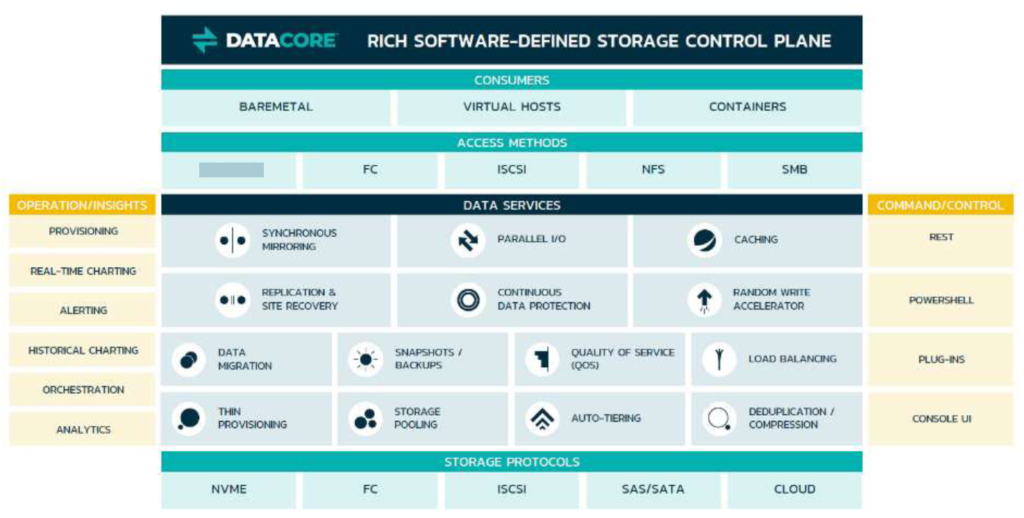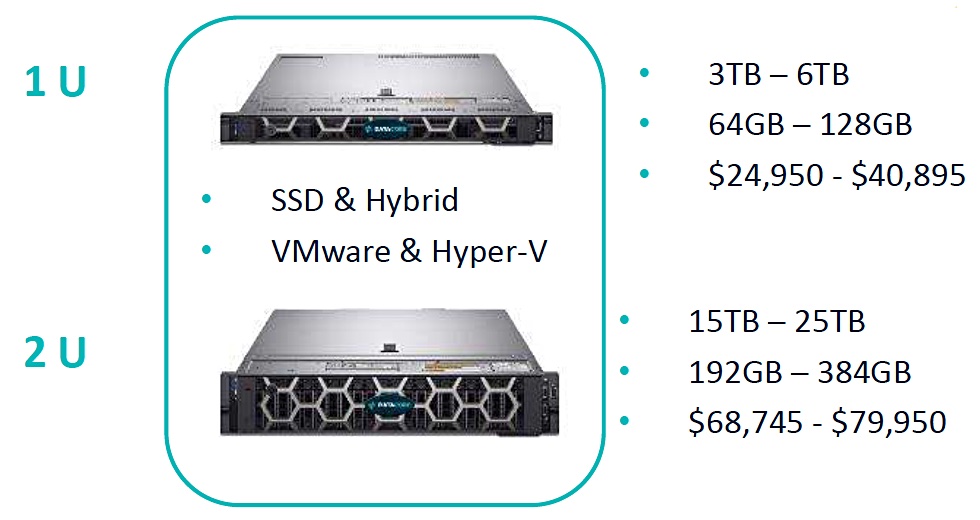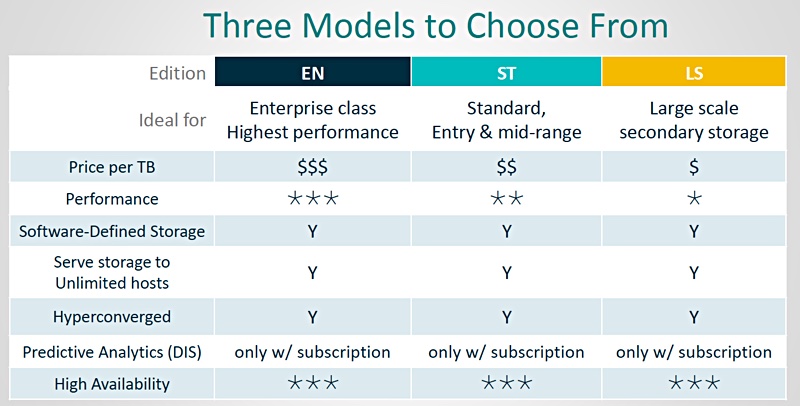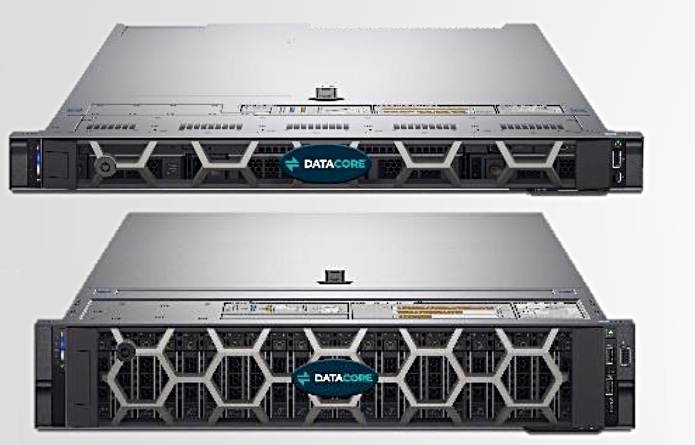DataCore, the SANsymphony supplier, has gone supersonic, launching a hyperconverged appliance, cloud-based predictive insights and a subscription licensing scheme.
The company, founded in 1998, has developed its SAN Symphony virtual SAN product over many years and the software comes in two flavours, either as a shared external storage facility or configured as a hyper-converged infrastructure (HCI) product, called a Hyperconverged Virtual SAN (HvSAN) for vSphere or Windows Hyper-V.
More than 10,000 customers use SANsymphony products and recent developments include a parallel IO facility in 2016 – which led to industry standard benchmark successes.
The company is now releasing DataCore SDS – technically speaking SANsymphony 10 PSP 9. This is available in HvSAN packages for both VMware vCenter and Microsoft Hyper-V.

CMO Gerado Dada told us by mail: “SANsymphony and Hyperconverged Virtual SAN (HvSAN) are really the same codebase. They are on the same version and have the same capabilities. The only difference between them is that the HvSAN is delivered in an installation package that is optimised for deployment in a HCI configuration.“
Dada said: “Over time, HvSAN and SANsymphony will go away. Part of the difficulty in renaming a product is that when a vendor does that that, they lose all the certifications, in or case we would have to re-start the certification process for SAP, VMware, Veeam, etc. – even if the product is exactly the same, just a different name.”
PSP 9 update
SDS (SANsymphony 10) PSP 9 adds:
- UI modernisation and a new web-based console that is more intuitive and task-oriented
- REST API library
- AES-256 bit encryption at rest
- Improved VVOL integration with a few enhancements and re-certification with newer versions of ESX
- DataCore Installation Manager one-click installers for Hyper-V and vCenter
- Resiliency improvement for ESX Metro-cluster configurations
- Monitoring and metering for our CSP customers supporting the PayG licensing model
- Various other improvements and bug fixes
HCI-Flex appliances
The latest iteration of the hyperconverged line is the HCI-Flex appliance and there are 1U and 2U configurations with vSphere or Hyper-V pre-installed and a deployment wizard to get the software installed and operational in a few minutes.
It can use external shared storage and scale compute and storage capacities independently, and a high-availability option needs a minimum of two appliances. So too can Dell EMC’s VxRail, using an arbiter or witness host in a virtual appliance, and HPE’s SimpliVity HCI product.
HCI-Flex is available as software to run on partner’s X86 server hardware, such as Dell, Lenovo, Supermicro and others, or as a hardware appliance.

We suggested t DataCore’s Dada that company was giving out a mixed software-defined-storage -but-we-sell-hardware-too message.
He replied: “The reason for the appliance is simplicity, mainly for our some of our resellers who don’t want to spend time configuring an appliance and installing software, they prefer a turnkey solution that requires less effort on their part. These resellers are also attracted to a system that has a single point of contact and accountability for support for both hardware and software.”
DataCore isn’t supplying the hardware. Dada said. “DataCore is and will continue to be a software company. We chose to partner with Unicom, a global company with very deep expertise in building hardware appliances. Unicom is a Dell partner, they procure the hardware, configure it, install our software, test the appliance, and Unicom sells and ships the finished appliance to our distributors. We are not really building a competence in hardware, and we don’t ever see hardware revenue.”
Dada declared: “Announcing our own appliance is helpful from a market awareness perspective, it calls attention to DataCore’s value for customers who are interested in HCI yet they may not be aware SDS provides a very attractive option. Some of the larger analyst firms won’t consider DataCore a real player in the space without an appliance.”
DataCore Insight Services
DataCore has introduced DIS (DataCore Insight Services), a cloud-based analytics platform service to improve the operational efficiency of its installed systems.
This is based on telemetry data from customers’ systems, existing knowledge, machine learning (ML)and AI. According to Datacore, the ML/AI combo detects current or foreseeable anomalies in installed systems. A built-in recommendation engine directs designated individuals to carry out corrective actions.
Prescribed steps are highly-automated and can be run remotely or on-premises, Datacore said. The aim is to achieve reduced downtime, faster response, higher efficiencies and cost savings.
Users can model workload or virtual machine additions in advance for smoother deployments.
DIS is available with subscription licensing only.
Subscriptions
DataCore customers can choose either perpetual or subscription licenses. The subscription licenses are based on terabytes of capacity over one or many nodes. Terms run for one, three or five years with upfront payments. Subscription and perpetual licenses cannot be mixed in a DataCore server group.

There are enterprise (EN), standard (ST) and large scale (LS) schemes available as the diagram above shows. A 1-year 50 – 99TB LS license will cost $245/TB while a 5-year 1 – 9TB EN license will cost $1,924/TB. Prices include DataCore Insight Services.
A perpetual to subscription license trade-in program is likely to be announced later this year.







